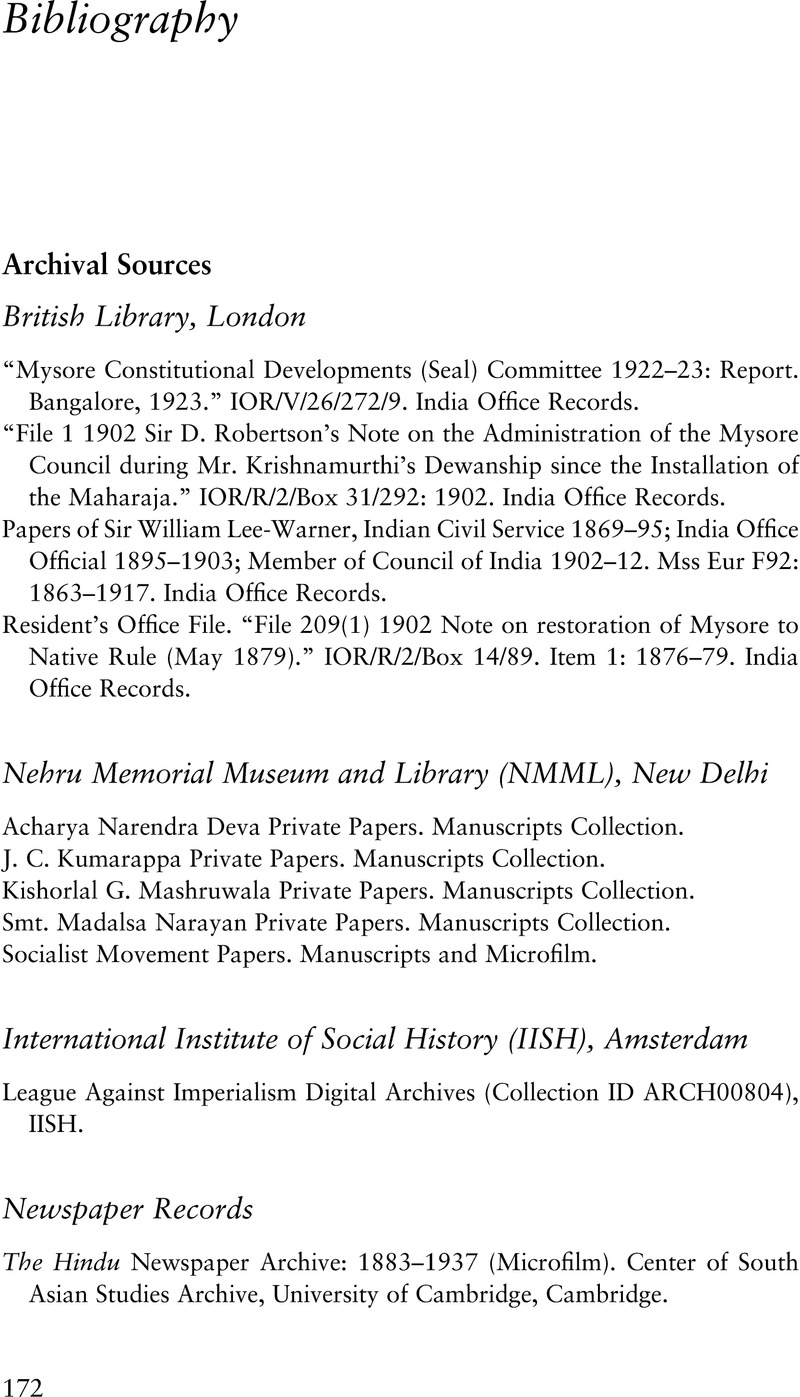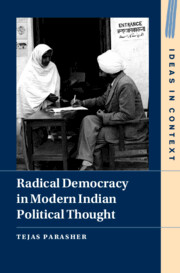Book contents
- Radical Democracy in Modern Indian Political Thought
- Ideas in Context
- Radical Democracy in Modern Indian Political Thought
- Copyright page
- Dedication
- Epigraph
- Contents
- Acknowledgments
- 1 Popular Sovereignty and the End of Empire
- 2 “The Genius of the People”
- 3 “A Vast Subterranean Democracy”
- 4 “A Living Union”
- 5 Representation, Popular Sovereignty, and the Indian Founding
- 6 “Towards Total Revolution”
- 7 Conclusion
- Bibliography
- Index
- References
Bibliography
Published online by Cambridge University Press: 06 July 2023
- Radical Democracy in Modern Indian Political Thought
- Ideas in Context
- Radical Democracy in Modern Indian Political Thought
- Copyright page
- Dedication
- Epigraph
- Contents
- Acknowledgments
- 1 Popular Sovereignty and the End of Empire
- 2 “The Genius of the People”
- 3 “A Vast Subterranean Democracy”
- 4 “A Living Union”
- 5 Representation, Popular Sovereignty, and the Indian Founding
- 6 “Towards Total Revolution”
- 7 Conclusion
- Bibliography
- Index
- References
Summary

- Type
- Chapter
- Information
- Radical Democracy in Modern Indian Political Thought , pp. 172 - 192Publisher: Cambridge University PressPrint publication year: 2023



